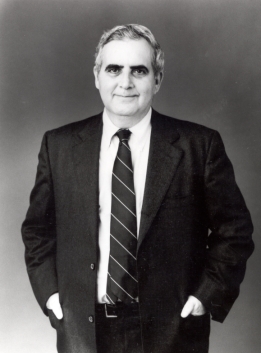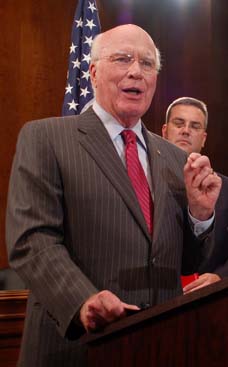
One problem was that I had not been cleared myself. I never mentioned that fact to my contacts in the FBI, nor did they ever seem aware of it. Nonetheless, each time I got a call from the Bureau, I was apprehensive. I feared that my own background investigation by the FBI's field agents might reveal that I had had a Communist roommate during my second term at Columbia and that one of my friends was the notorious homosexual Allen Ginsberg, neither of which seemed likely to make a favorable impression on the FBI in 1961. But in the event, neither fact was uncovered by the agents in the field. "Washington Monthly" Founder and Editor Emeritus Charles Peters was Director of Evaluation for the Peace Corps under founding Peace Corps Director Sargent Shriver.
Charles Peters writes: When I joined the Peace Corps staff in April 1961, my first assignment was to coordinate and evaluate security investigation reports from the FBI
Maybe if my name were Ahmed Peters …
Last year, one in four Pentagon employees or contractors who were granted top-secret clearances had "significant derogatory information" in his or her background, according to a recent study by the Government Accountability Office. One example: a translator for the U.S. military in Iraq was cleared even though he lied about his name and his biography, and later admitted to taking bribes and removing classified files from his office and having "unauthorized phone and e-mail contact … with Sunni sheiks in the Sunni Triangle." Without knowing more, we can't of course be sure of how many of the others granted clearance were truly dangerous. I suspect that it was only a few. But even a few is troubling.
My own experience with security clearances does not inspire confidence. When I joined the Peace Corps staff in April 1961, my first assignment was to coordinate and evaluate security investigation reports from the FBI. One problem was that I had not been cleared myself. I never mentioned that fact to my contacts in the FBI, nor did they ever seem aware of it. Nonetheless, each time I got a call from the Bureau, I was apprehensive. I feared that my own background investigation by the FBI's field agents might reveal that I had had a Communist roommate during my second term at Columbia and that one of my friends was the notorious homosexual Allen Ginsberg, neither of which seemed likely to make a favorable impression on the FBI in 1961. But in the event, neither fact was uncovered by the agents in the field.
In one sense, I find this comforting, since neither fact should've cast doubt on my loyalty. But in another sense, I remain troubled by the fact that the investigators failed to unearth facts that would've seemed highly significant to them at the time. Today, many of these security investigations are done by people far less skilled than the FBI agents of 1961, so common sense tells you that a lot of relevant facts are missed.













